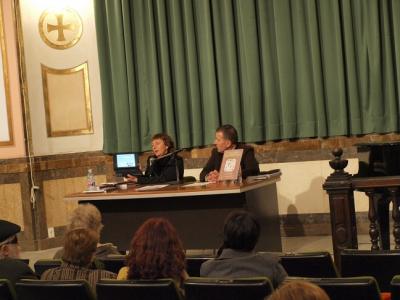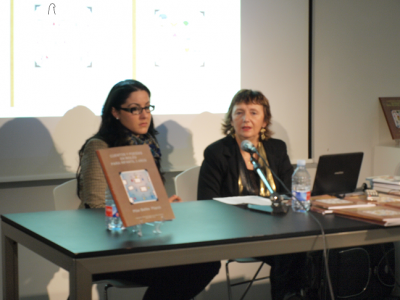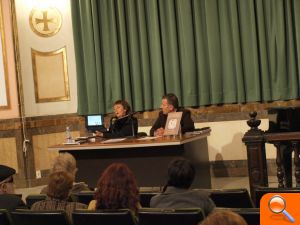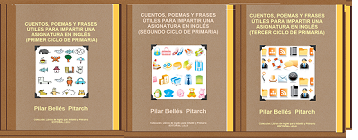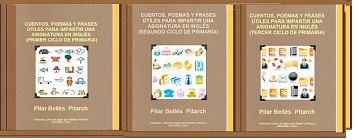‘This is my pet, she is a budgie,’ says Miguel.
‘‘What’s her name?’ ask his friends.
‘She is Titeta.’
‘How old is she?’
‘She is three years old.’
She is special because she is a part of my family. This is her story.
‘Dad didn’t like hairy animals because they made a mess of his house. But Mum wanted a pet for me and I wanted an animal. Finally, they bought a pair of budgies, Tito and Tita. Tito was green and Tita was blue.’
Miguel and Mum taught their budgies to talk, but budgies didn’t talk. They kissed one another and played together, but those budgies didn’t like people. It was a bad experience for Miguel and Mum.
‘You can’t caress a budgie like a dog. It’s impossible,’ says Dad.
‘I want a dog,’ says Miguel.
‘Nooooooooo!’ says Mum.
I’ve got two budgies
Green and blue,
They caress and kiss
But they don’t talk to you,
I wanted a dog
Noooooo!
Months later Tita dies. Tito is sad. It is Miguel’s birthday and his parents give him a present: another budgie.
‘But… I wanted a dog.’
‘Noooooooo!’
When they put the new budgie into her cage, Tito isn’t there. He has escaped.
‘It’s only a baby…’ says Dad.
‘Her name is Titeta,’ says Miguel.
‘Wait! I’ve got an idea,’ says Dad.
He picks up Titeta in his hands and… What a surprise! He can pick up it.
‘Let’s fly,’ says Dad.
Then Titeta flies through the living room happily… She has got beautiful feathers.
‘She is beautiful…’ says Mum.
‘Titeta is flying!’ shouts Miguel.
Tita dies
Tito goes away,
It’s Miguel’s birthday
Titeta is flying,
Miguel says.
Unhappily Titeta breaks her leg. They take her to the vet, they look after her and they feed her.
‘We are looking after Titeta,’ says Miguel.
A month later, Titeta is like a baby for them. They can pick her up. Miguel plays with her. He chases her through the house and the garage.
‘I’m playing with Titeta. Titeta is flying. I’m chasing her.’
Dad and Mum love Titeta too. Titeta rides on Mum’s shoulder most of the time.
‘Titeta is riding on Mum’s shoulder.’
Titeta only goes to her cage to eat and to the toilet. When there is a party Titeta is the centre of attention. Titeta likes going out of the house on Mum’s shoulder, she doesn’t fly away. She is happy at home with Mum, Dad and brother.
Titeta is a baby,
She is flying
But she doesn’t fly away,
She is playing with me
Most of the time.
One day Miguel, Dad and Mum take Titeta by car to visit Miguel’s grandmother.
‘We are visiting my granny.’
‘What a nice animal!’ says granny.
Then they go back to their car. Miguel is so happy that he turns on the radio.
Titeta gets scared and she flies and flies. She is lost.
What have you done?’ asks Mum. She is angry.
‘I don’t know…Titeta is lost…’ says Miguel crying.
They didn’t know what to do.
‘Let’s go and look for her!’ says Dad.
Miguel, Dad and Mum run in the same direction Titeta flew.
She is on a car windscreen waiting for them. She is scared.
Dad calls her name and she flies to his shoulder. Miguel and Mum kiss her and they go home.
Now they know Titeta is a part of their family. Persistence and effort are necessary to get our purposes. Titeta got it. But we must be careful with limitations.
Titeta goes by car
To visit granny
Don’t fly away
Stay here
With your family.
TITETA IS A PART OF MY FAMILY
I’ve got two budgies
Green and blue,
They caress and kiss
But they don’t talk to you,
I wanted a dog
Noooooo!
Tita dies
Tito goes away,
It’s Miguel’s birthday
Titeta is flying,
Miguel says.
Titeta is a baby,
She is flying
But she doesn’t fly away,
She is playing with me
Most of the time.
Titeta goes by car
To visit granny,
Don’t fly away,
Stay here
With your family.
INTRODUCE YOURSELF: USEFUL LANGUAGE
Introduce yourself: Hello! I’m (...); what’s your name?; his/her name’s (...); I like your (...); how old are you?; I’m (ten); have you got (any brothers or sisters)?; I’ve got (...); I haven’t got (...); animals. It’s good to hear you. Let’s all meet again. How old is he/she? What’s his/her name? My/His / Her name is (...). Has he/she got a brother/sister? Where does he/she live? I like playing (the drums/English).He/She likes (playing guitar). She’s good at (singing). I’ve/She’s got a (...). He / She hasn’t got a (...)? I have/No I haven’t. Where/What does he sleep/eat? He sleeps (...)/eats (...).
Vocabulary: days of the week, objects of the classroom, the alphabet; age, family, food, everybody, great, rollerblades, twins, tennis racket, wardrobe, basket, summer camp, furniture, routines, animals and food; Open Day; welcome; days of the week, months and subjects; classroom; armchair, sock and shoe.
Sentences: where’s/re my (pen/s)? Have got (objects / family); new; excuse me; here you are; please; sorry; thank you; thanks; my favourite (...) is (...); both. Hip, hip, hurray! This is (...).That’s right. This is a (...). It’s for (...). Something to (...). Beginning with (...). I love (...). (It) was. Sorry! Is it behind/in/on/under the table / door. Yes it is/No it isn’t.
PRESENT SIMPLE AND PRESENT CONTINUOUS: USEFUL LANGUAGE
Verbs: Present Simple, Present Continuous. Past simple of verb to be; can; throw.
Vocabulary: dragon; knight/s; hero/es; kite; scared; parts of the body; legend; programme; kinds of stories (animal, adventure, true, funny); telling the time; plural of substantives; days of the week; hydra; cage; cave; comparatives; heroine; queen; Egypt; Greece; adjectives; animals; food, free time activities, sports, health, months of the year, ancient; message; crying; happy; laughing; sad; colours; the alphabet; action verbs; snorkelling; climbing; flying a kite; badminton; basketball; disco dancing; fantastic; fixing (things); language; machine; bright; here; too; very; hero / heroine; really; all; universe; hall; rock; cover; places; title; fight; sword; the bottom; coin; heads; tails; faces; faraway; handsome; arrows; art gallery, deer; lions; long ago; museum; painting; peasant: dream; love; piece (of cheese); everyday things; people to know; ; times long ago; free time activities and hobbies.
Sentences: do you like (adventure stories)? Yes, I do /No, I don’t; there is/are; where was he from? has got; is good at; what’s your favourite (...)?; where are you?; what are you doing?; I like/I don’t like; what are you good at?; I’m good at (...);what you do/don’t you like doing?; what about (...)?; listening to music; yes, I do/no, I don’t; tickets; have you got (...)?; do you like (...)?; are/is (...)?; do you want to come? It doesn’t work. Milo pushes the light. This is the wall. I can hear a voice. I’ve got a medal. I’m an artist. I think (...) is fantastic; breaking the door. Life was hard.
Computer vocabulary: browse; click; download; keyboard; Internet; mouse; screen; scroll down; magazine; newspaper; webpage; website.
